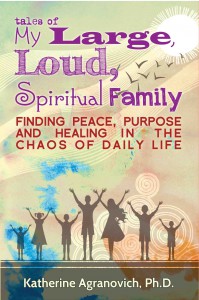Three weeks ago, I was flying from Boston to Los Angeles, and my nine-year-old son was asking the flight attendant questions like “What movie are we going to watch tonight?” and “How long is the flight?” He was using a normal voice and being very polite. (During the 6-hour flight he asked maybe three questions total.) But the flight attendant grew increasingly impatient and started rudely snapping at my son: “Keep your voice down, young man!” and “Stop asking me when we’ll arrive in LA, because the answer will always be the same.” Meanwhile, she was being super-nice to a male passenger and chatted loudly with him for half-an-hour.
Everything clinches within me, but I say nothing because my own inner child (a part of me who holds the cluster of learned responses from the first ten years of my life) is now triggered. She who is not supposed to talk back to adults, and who, God forbid, has her own opinions, wants and needs. And so, crying on the inside, I keep silent, blindly staring at my phone. And then later, looking at my son, who has not yet developed a complex of being unworthy or inappropriate, and who finally got what he wanted (headphones, a movie and a snack box), I wonder: Do our kids represent too much happiness and aliveness, freedom and self-esteem to us adults, who have forgotten these things?
I get my laptop out and start typing…
It must be very frustrating to be a child. Constantly being bossed around by parents and teachers, told what to do, study, eat, wear, play with, be injected with. It leaves our kids feeling disempowered, helpless and out of control.
But who are the kids? They are people like us in smaller bodies. Their minds are like sponges, innocent clean slates. Children believe everything we adults say, and internalize it as their reality. Every time we criticize them, they form a mental perception that “Something is wrong with me, I must be bad, it’s my fault, I am not lovable, I am a disappointment, I don’t know what to do.” And then they are yelled at and punished—disciplined for reflecting back to us our own human pitfalls.
With time, the negative momentum, like a huge snowball, creates low self-esteem, which can result in depression later in life—a chronic state of unhappiness. And if a person feels anxious and depressed for a prolonged period of time, it becomes a habitual way of being. Life is seen though a shady lens of perceptional unhappiness, leading to negative life choices, and the inability to take positive action. The longer this habitual unhappiness is practiced, the harder it is to replace it with joyful living.
And yet, it’s really never too late to stop this avalanche. What’s crucial to realize is that we can’t condemn, reprimand or punish our children for the emotional pain they are experiencing. Our parental guidance should come from a place of wisdom and understanding, acceptance and compassion. The child needs to be consistently acknowledged, empowered and loved. There must be a way to allow our kids to express their boundless, free, heavenly nature here on Earth while being conscientious (kind, loving and responsible) members of society.
Frederick Douglas said, “It is easier to build strong children than to repair broken men.” Brilliant. There needs to be a mental shift, where we grant our kids the gift of empowering parenting. Which means that we have to become empowered adults, because we can’t offer what we don’t feel inside. So if we set an example of enjoying life, respecting other’s opinions and appreciating their differences, then when we demand good behavior from our kids, they will mirror back to us the jumping-rope-skipping-giggly and profound beauty of this life.
When we feel good about ourselves, we offer the language of encouragement to our kids with statements like:
• You know what’s right for you, and I trust you
• You are amazing, capable and smart
• You deserve to be happy; life is always getting better for you
• You are always trying your best, and I see you succeeding
• What you have to say is important; your opinion matters
• When you think of something you want and believe, it is possible, it will come to you
Statements like these, when they are used often, will create mental-emotional alignment (mind and heart think and feel in unison), leaving our children feeling self-assured, capable and excited about embracing life¬—not numb to it, blocking it, or disconnecting from it.
And wouldn’t this be the best thing we could do for both ourselves and our children—shining the light of empowerment upon the generations to come?

